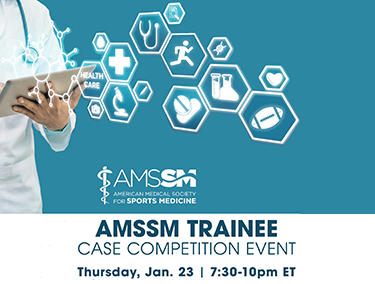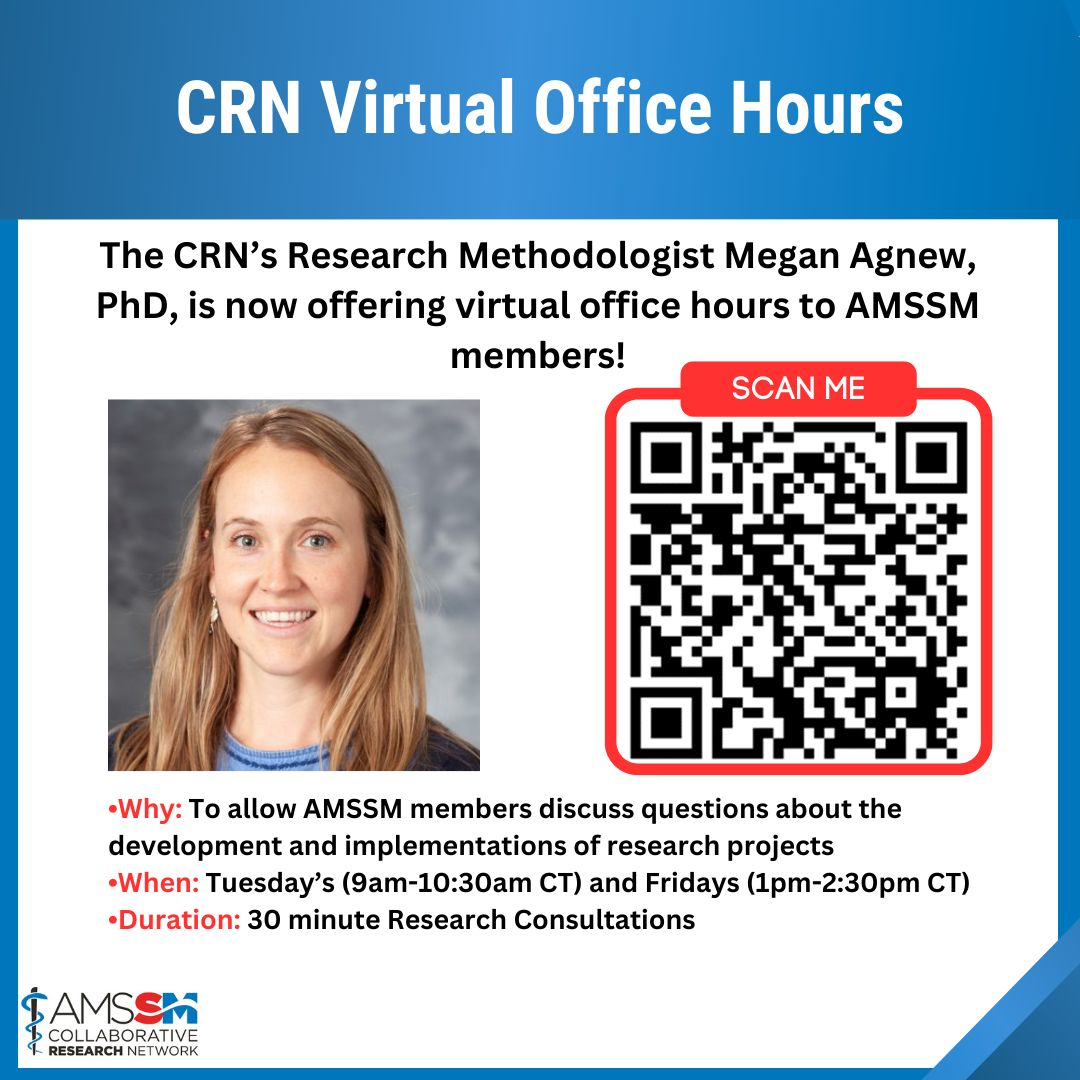By George Pujalte, MD; Jonathan Finnoff, DO; and Jay Smith, MD
There are many reasons for sports medicine physicians to take the American Registry for Diagnostic and Medical Sonography (ARDMS) Musculoskeletal (MSK) Ultrasound (US) certification test. The primary reason is to demonstrate a standardized level of competence in MSK US. Although some may argue that computer-based testing does not adequately assess competence, this is the same type of test used for other medical certifications (including the primary care sports medicine board examination), and is a well-accepted format for assessing competence. Therefore, despite its limitations, computer-based testing is the best format currently available.
If sports medicine physicians choose not to participate in establishing their MSK US competency, they risk losing the privilege of using MSK US in their practices. Increasingly, educated patients may direct their care only towards those physicians who have demonstrated MSK US competency and third party payers may introduce rules and restrictions that may limit patient access and/or reimbursement to those practitioners who have demonstrated competency. Therefore, a proactive approach to protect our patients and our interests is imperative.
Currently, any physician can purchase an ultrasound machine and begin billing for diagnostic and interventional ultrasound without receiving any training. The lack of defined training standards and educational oversight, combined with the dramatic increase in the utilization of MSK US by non-radiologists, has resulted in the Centers for Medicare and Medicaid Services (CMS) and other third party payers increasingly scrutinizing who is performing MSK US and what type of training they have received. It would be extremely difficult to prove to these entities that a majority of the sports medicine physicians performing MSK US are adequately trained. MSK US is not a required part of non-radiology residencies or sports medicine fellowships, and most sports medicine fellowships have not incorporated structured MSK US training into their curriculum. Furthermore, MSK US training is neither mandated nor assessed by the residency review committee, nor is it assessed on the sports medicine board examination. In summary, there is no compelling reason to believe that sports medicine board certification indicates any level of competence in MSK US.
One response to the dilemma of the lack of standardized education and oversight for MSK US during sport medicine fellowships would be for the AMSSM to consider whether structured MSK US training should become a requirement of fellowship training. Although this may be a viable option, initiating and implementing change in the fellowship curriculum would require Accreditation Council for Graduate Medical Education (ACGME) endorsement and, if successful would be a time consuming process taking several years. During this time, educational standards and oversight methods would need to be established, faculty training would need to occur and new board certification questions incorporating MSK US would need to be developed and integrated into the examination. Of historical note, it took the field of emergency medicine approximately ten years to develop and implement standardized US training and integrate appropriate questions into the written and oral examinations of the American Board of Emergency Medicine1. Even if this process is successful, it would not pertain to those practitioners who complete fellowship training prior to the MSK US curriculum integration, who would still have no objective method to demonstrate competency.
Since MSK US training is not a required part of sports medicine fellowship training, and will not be in the foreseeable future, other means of demonstrating competence in MSK US are required. There are two methods currently available to do this. First, one may take the ARDMS MSK US certification test, leading to the RMSK certificate. Second, a practice group may obtain practice accreditation through the American Institute of Ultrasound in Medicine (AIUM). Both of these organizations are well established and respected non-profit groups with the shared goal of improving the use of US for patient care. Furthermore, both organizations are recognized as legitimate organizations by CMS and other third party payers, suggesting that credentials received by the ARDMS and AIUM could be considered as appropriate documentation of MSK US competency for patient care and reimbursement purposes. In the past, both organizations have defended their credentials and the practice rights of those individuals who have received them when CMS and/or other third party payers have questioned US billing practices.
The ARDMS is one of the primary certifying bodies for sonographers. Most sonographers have “RDMS” (Registered Diagnostic Medical Sonographer), “RVT” (Registered Vascular Technologist), etc., after their names, which mean that they passed ARDMS tests. While most of the ARDMS tests are directed towards sonographers, the recently developed MSK US certificate (RMSK) was developed for a diverse group of practitioners including sonographers, physicians and physician assistants.
The ARDMS has several prerequisites that need to be met prior to taking the MSK US certification test. The first is that 150 ultrasound images must be collected, the second is that 30 hours of continuing medical education (CME) in MSK US is strongly recommended (no longer required) as the educational foundation prior to the examination. The AMSSM was involved in the modification of this recommendation. The ARDMS prerequisites do not waive the 30-hour CME recommendation for sports medicine fellows, however many fellowships provide approximately 30 hours of education on MSK US to meet the recommendation.
It is interesting that the current discussion about ultrasound certification in sports medicine is somewhat similar to what happened with physical medicine and rehabilitation (PM&R) when the Certificate of Added Qualification (CAQ) was first introduced. At that time, physiatrists were invited to participate in this process. However, physiatrists decided that they did not need a board examination to prove that they were good at sports medicine. Over the next decade, PM&R became a smaller and smaller player in sports medicine for many reasons, but one of the primary reasons was a lack of CAQ sports medicine certifications. Physiatrists were often not viewed as sports medicine experts since they had not completed this examination. It would behoove sports medicine physicians not to make this same mistake with ultrasound certification.
Although this article has focused on the recent implementation of the ARDMS MSK US certification test, AMSSM members should also realize that the AIUM has offered practice accreditation in MSK US for several years. By virtue of this process, a practice may apply for and receive certificate documenting adherence to AIUM standards for the delivery of MSK US services (qualified practitioners, utilization of scanning protocols, machine maintenance, etc.). Implicit to practice accreditation is the recognition that clinicians within the accredited practice have met the qualifications outlined in the document “Training Guidelines for the Performance of Musculoskeletal Ultrasound Examinations” adopted by the AIUM in 2009 (available free from AIUM). Thus, practice accreditation covers both the practice and the clinicians practicing within it. Although some individuals have assumed that practice accreditation (AIUM) and personal certification (ARDMS) certificates are competitive, they may in fact be complementary. More information regarding practice accreditation can be found at AIUM.
In closing, the AMA House of Delegates released this position statement in December 2001. “The AMA recognizes that ultrasound imaging is within the scope of practice of physicians with training in the technology, and that physicians should qualify for privileging if they possess appropriate training as specified by their respective specialty association2.” The House of Delegates, as such, appears to lean towards having the specialty colleges set credentialing standards for certification and training in ultrasound. Furthermore, the AMA strongly recommended these criteria be in accordance with recommended training, and that education standards be developed by each physician’s respective specialty. The AMA also recommended, based upon background and training for the use of ultrasound technology, that hospital medical staff review and approve criteria for granting ultrasound privileges2. Again, since MSK US is not currently a required part of sports medicine fellowships, and is unlikely to be a required part of sports medicine fellowships in the near future, it is important that we adopt an appropriate training standard and credentialing process now. The ARDMS MSK US certification and AIUM practice accreditation training requirements and certification/accreditation process provide us with an immediate solution to this problem.
Sports medicine physicians need to look at ultrasound certification realistically and understand the implications of not participating in this process and how it may affect them and sports medicine in the future. The time to participate is now, at the beginning of the process, not when sports medicine has been excluded. Taking the test should be an individual decision. However, sports medicine physicians owe it to their patients to practice MSK US to some type of standard that is objective and measurable, recognizing the limitations of any standard, including sports medicine board certification.
REFERENCES:
1. Sankoff J, Keyes LE. Emergency Medicine Resident Education: Making a Case for Training Residents to Perform and Interpret Bedside Sonographic Examinations. Ann Emerg Med 1999; 34: 105–8.
2. American Medical Association. Privileging for Ultrasound Imaging 2001; Policy H-230.960. Available at: www.ama-assn.org.
The conclusions and opinions in this news article should not be interpreted as official statements of the American Medical Society for Sports Medicine.




















